Best coffee stall - Ghim Moh Market, Singapore
A short session with Uncle Teo of Ghim Moh Market (#01-32). This is at block 20 Ghim Moh Road, in the estate of Ghim Moh. The market is just opposite of the Ulu Pandan Community Club. Unfortunately they will be shifting to a temporary location just opposite of where they are now. This is to facilitate the upgrading works of the new 2-3 storey hawker/market centre.
Uncle Teo wakes at 0400hr daily to tend to his stall. This is one of his two units in the Holland district. As he rotates operating between these two, he tasks himself with this stall each Monday. The remaining days are operated by his staff, who also brews excellent coffee. This particular set was shot on a Monday, 0600hr. Though early, they have a regular stream of visitors, and they do not need to repeat their orders, because its all remembered by heart!
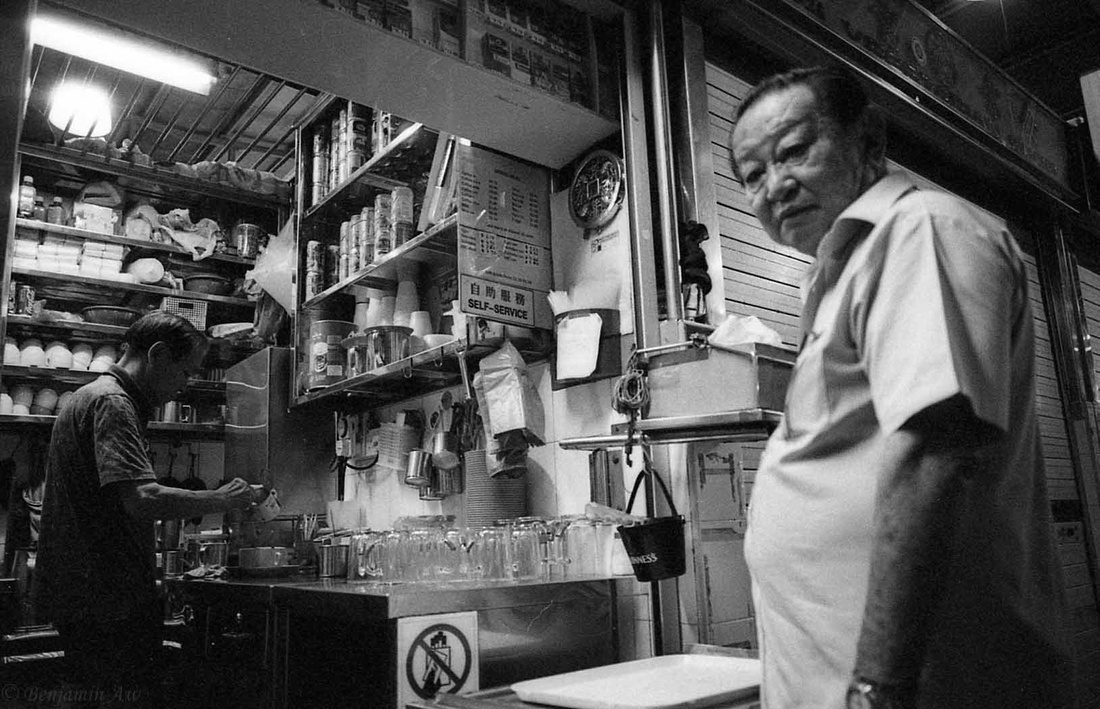

If you enjoy a cup of thick, strong coffee, this is the place.
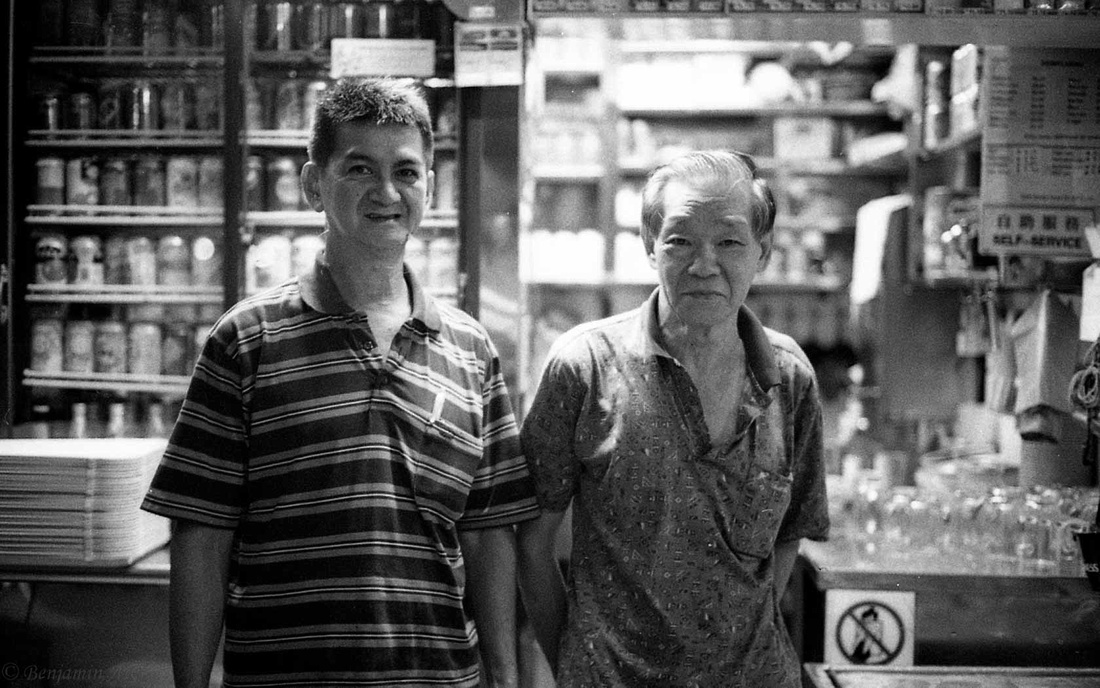

Uncle Teo is in the striped polo T-shirt while 'Uncle' is his able assistance who brews a cup that will shame the baristas of Starbucks. After slurping all these coffee and tea in the years that I have been partronising them, I finally have a portrait of them! Soon, I will invest more time and get a real portrait, with my Mamiya RZ67 and the 110mm/2.8.
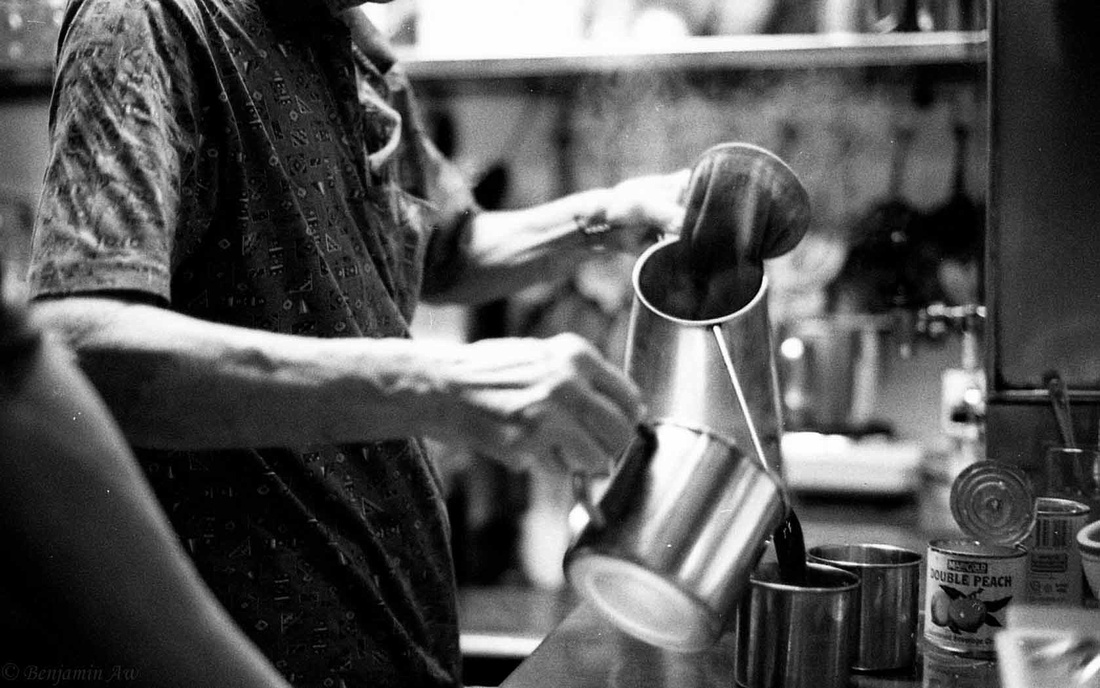

If you are visiting Singapore, here are some tips on how to order coffee/tea in our coffeeshops/markets/stalls in the neighbourhood.
Coffee with milk + sugar = Kopi
Coffee with sugar only = Kopi-O
Coffee with milk, no sugar = Kopi-O Kosong
Coffee no sugar, no milk - Kopi Kosong
Coffee light, with milk = Kopi - Poh
Coffee thick, with milk = Kopi Kau
Coffee warm (not piping hot) = Kopi Puay-Shiow
If you would like tea, just replace the Kopi with 'Teh'. These phrases and 'codes' are regular jargon that we use to simplify the order taking process. You can use this method with Indian/Malay stalls as well. Amazing eh?
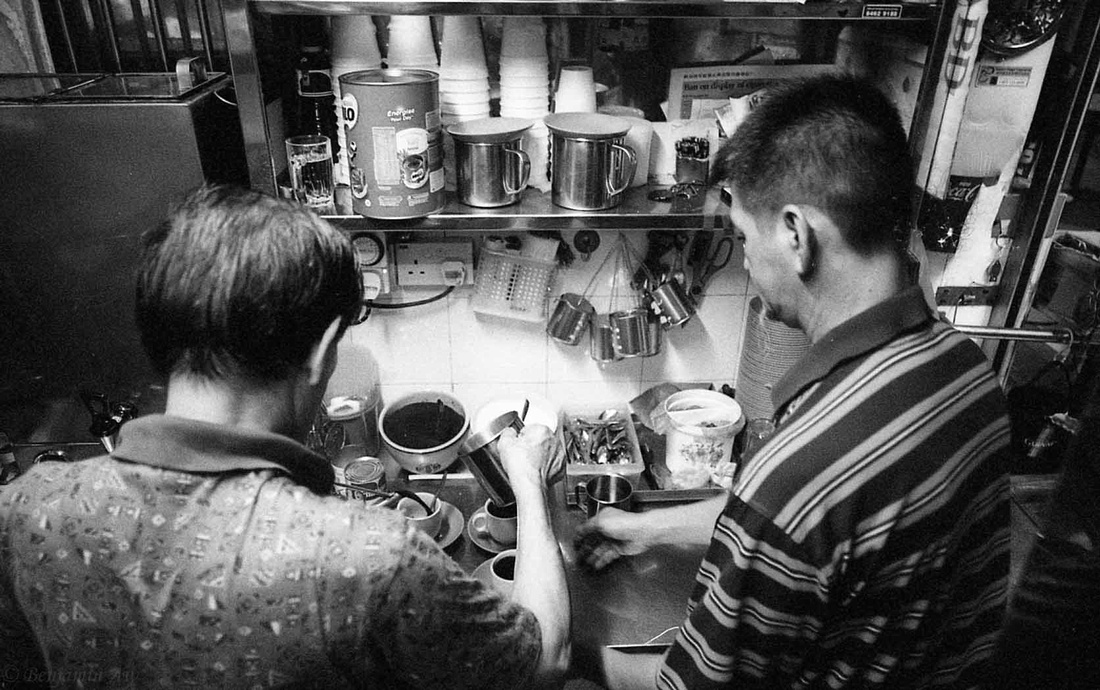

In this humble little stall, fitting three full grown men is a tough feat. One will wash the cups, another will collect the money and take the orders while the other will brew. The various common tools are all within arms reach. Those silver cans hanging on the wall are actually milk tins that are still used today to 'take-away' hot drinks. This is an excellent eco-friendly method to sell coffee instead of the plastic or styrofoam cups used in the modern cafes.
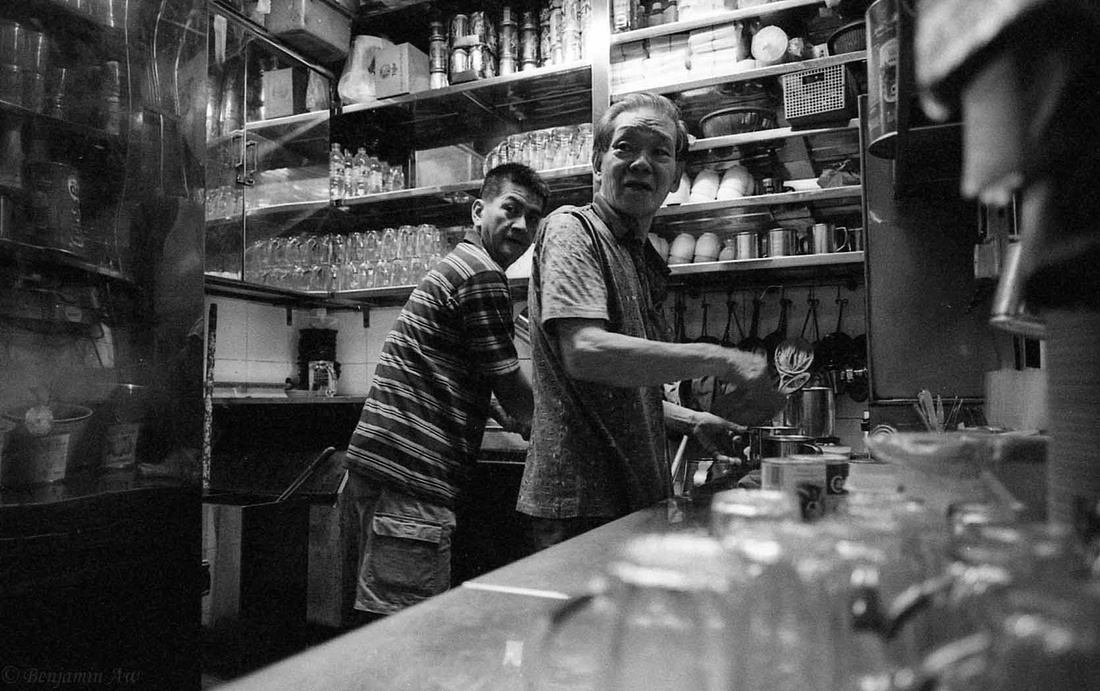

Coffee stalls like these, usually sell toast and eggs to go as a breakfast. Uncle Teo on the other hand, is a little different in his management technique. In order to maintain his standard of coffee, he rarely does provide soft boiled eggs and kaya toast in his stall as it is a rather time consuming task to boil eggs and prepare toast. To me, this is a wise choice. Though a tough one.
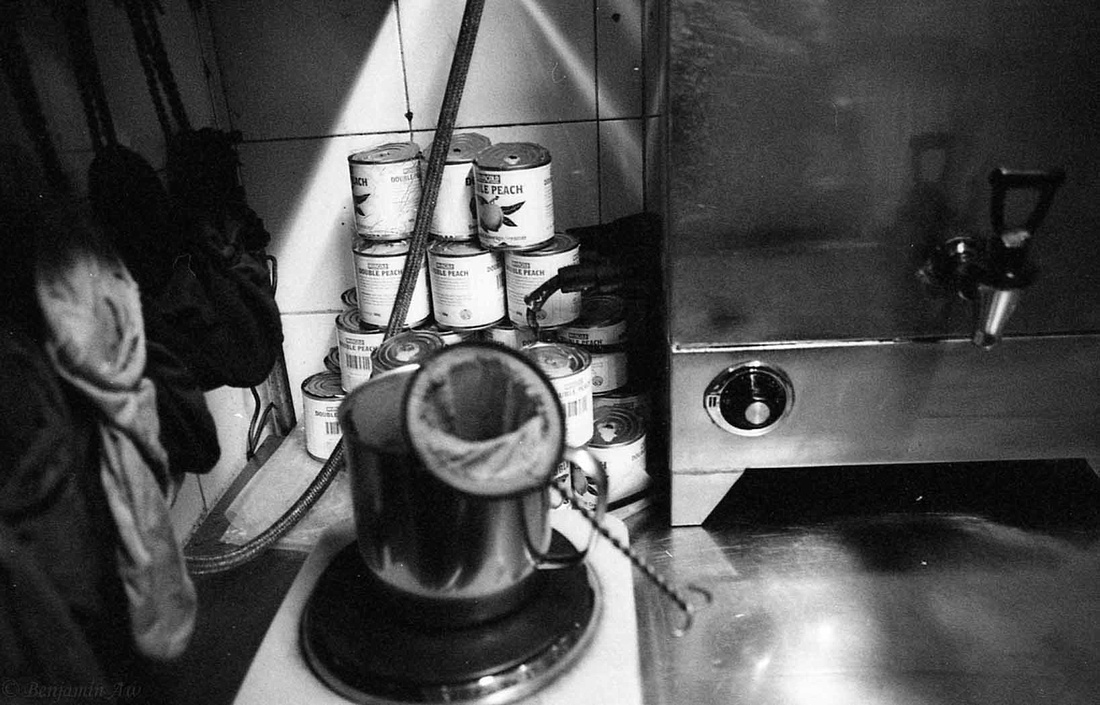

That strainer you see in the front of the image is actually the 'sock' that strains off the coffee powder.
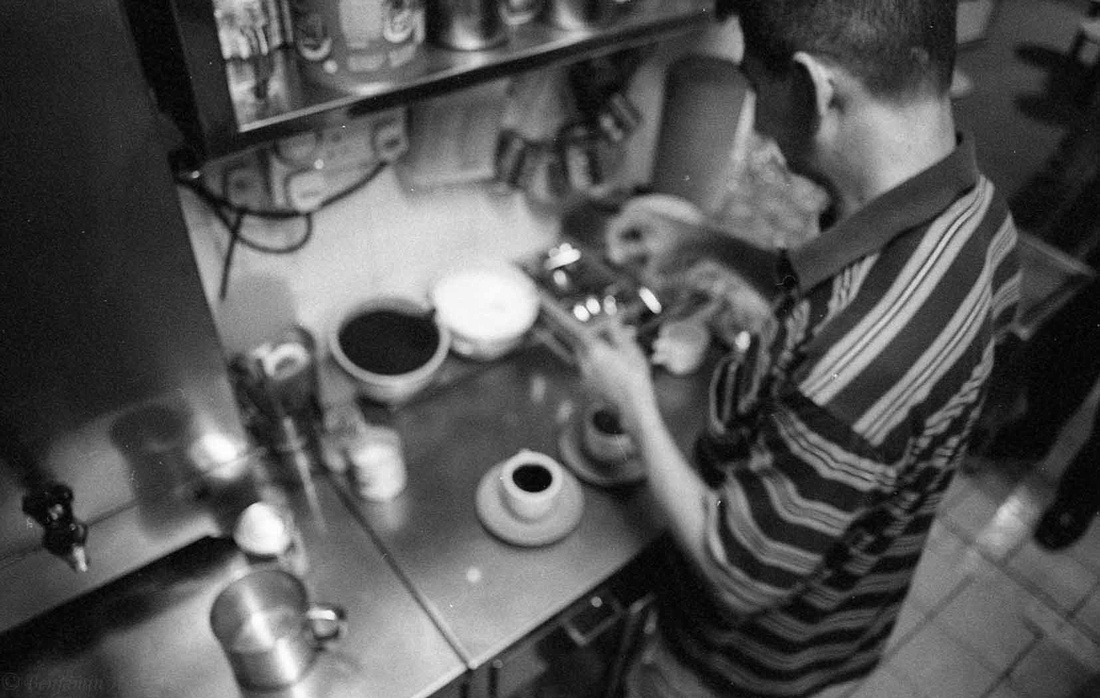

On the average, they sell about 300-500 cups per day, washing them multiple times each shift. It is a tough, tough task.
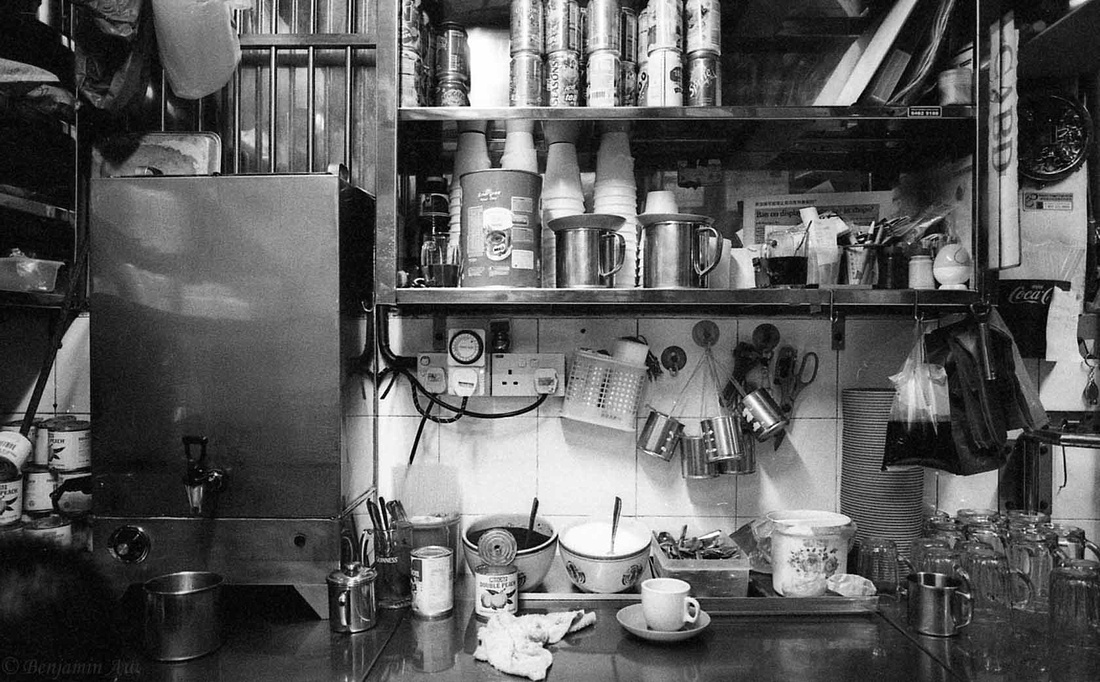

On the left, is the massive boiler that keeps their stock of hot water. The top rack, is their stock of 'new' styrofoam cups that their customers insist for them to use instead of the usual plastic carriers and condensed milk tins. On the table, you can see the ground coffee and sugar, where the 'Order Taker' will prepare the order with specific 'codes' and 'signs' for the brewer to do. This could be a simple sign such as a cup with a spoon of sugar and milk. This denotes a 'Kopi' order. Another code could be two spoons, showing that the order is double.
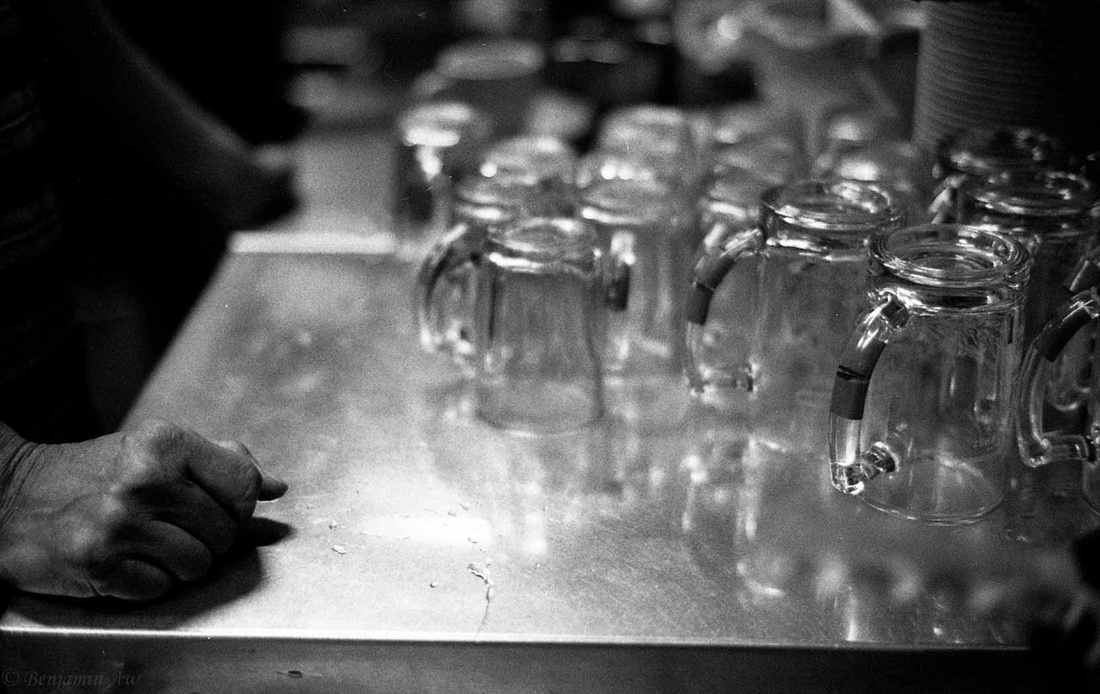

There are two cup sizes. I personally prefer the smaller one, as it has a better coffee - water ratio (stronger coffee) YUM YUM! The cup on the extreme right has electrical tape stuck to the handle. This marks the cup as belonging to this particular unit number in the market. This is because each market can have 4-6 different coffee stalls. In addition to the regular coffee & tea, canned drinks such as Coke and green tea are available. Adding to that, beer and cigarettes.
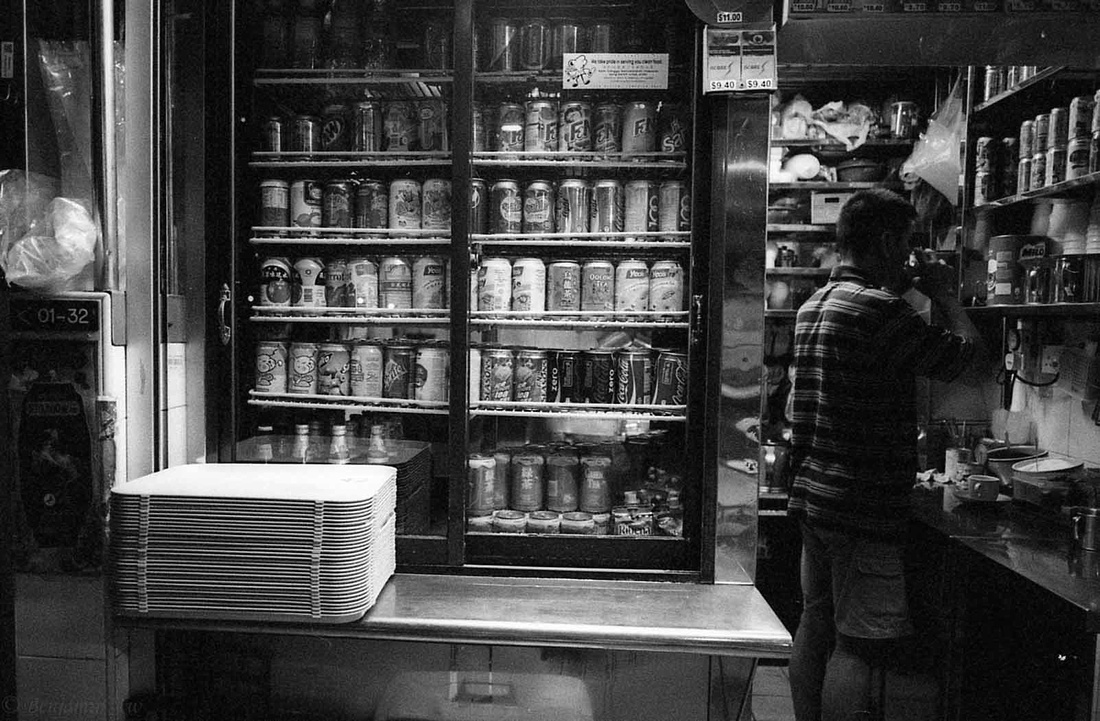

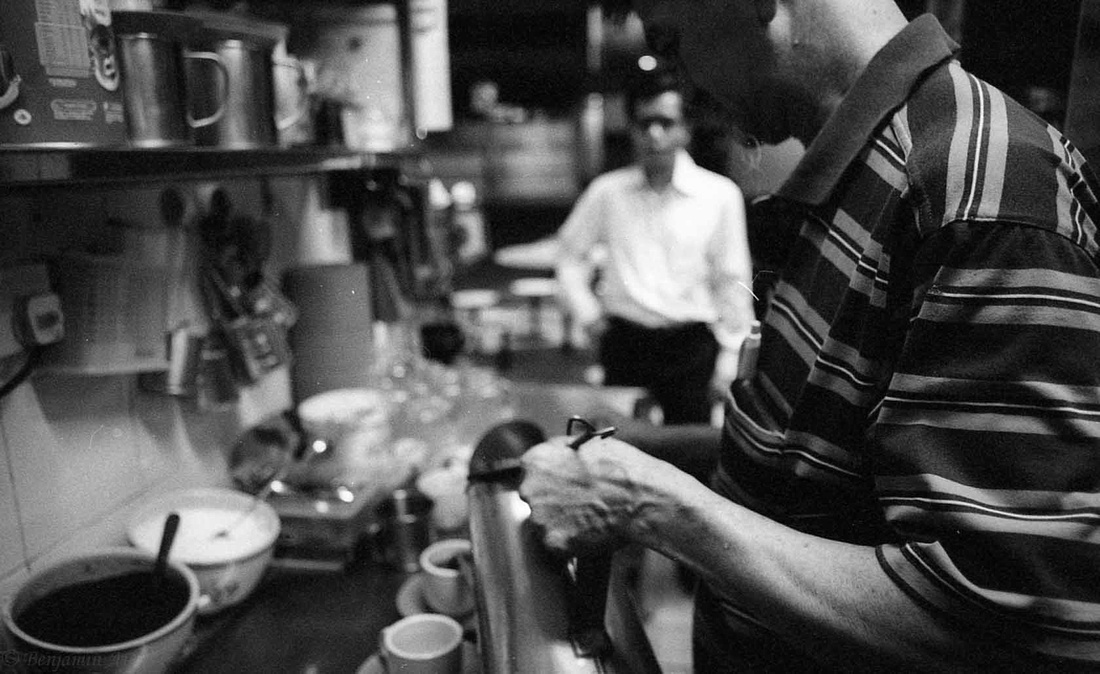

Need some coffee?
Look out for part two of this story in about 3 weeks!
(This series was shot with the Leica M3DS, Zeiss 50/1.5 and the Zeiss 25/2.8 with Kodak Tri-X)